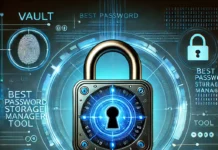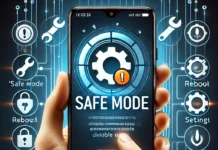Our online activity can become a gateway for hackers to insert viruses on our computers or steal our data. For crypto users, the thought of having our devices hacked could be devastating. Hackers like to target crypto wallets and exchanges because they know the rewards can be huge, just like when some hackers wiped over $20 million from one bitcoin user’s account.
Anyone using crypto today can be found telling their friends why bitcoin is the future over dinner or scrolling through internet pages trying to make sure they are keeping up with security measures. One question, not enough people are asking is if a VPN is necessary to execute crypto transactions. Here is the answer.
How Do Crypto Transactions Work?
 Cryptocurrency is a revolution in the financial world because it operates without a central authority. Most of us have a bank account and each time we transfer money to a friend the bank verifies the transaction for us. We may enter the details of the beneficiary account but most of the heavy lifting is done by the banks or card issuers like Visa and Mastercard.
Cryptocurrency is a revolution in the financial world because it operates without a central authority. Most of us have a bank account and each time we transfer money to a friend the bank verifies the transaction for us. We may enter the details of the beneficiary account but most of the heavy lifting is done by the banks or card issuers like Visa and Mastercard.
With cryptocurrency things are a little different. No central authority verifies payments, but each transaction is added to the blockchain – a public ledger – by miners. These people work to verify payments as a replacement for banks but are rewarded for their hard work.
This also means there is no need for a bank account and crypto is stored in a wallet, like an online bitcoin wallet. The downside of not having a bank is that your bitcoins are not insured if they are stolen, which is the reason why choosing a stellar wallet provider such as Luno is a must.
Security is a hot topic among the crypto world and having your wallet hacked is why so many crypto users question whether it is necessary to use a VPN to carry out their crypto transactions.
What Is a VPN?
To answer that question, it is important to know exactly what a VPN is. VPN stands for Virtual Private Network and is one way of adding security to networks that may be judged to be insecure, such as public WiFi and hotspots that anyone can join easily. They are most often used by businesses handling personal data to protect their customers, but an increasing number of everyday people are using them.
The VPN itself replaces the user’s IP address with an artificial one in another location. This is why VPN users can be based in London but show up as being in any other country in the world, depending on their VPN provider. VPNs can be bought online by a host of vendors and most purchases result in a subscription for a year or two, with the possibility for renewal.
Why More People Use a VPN?
Online security and protecting personal data are jobs that everyone needs to be on top of today, not just those big companies. Hackers can target any Tom, Dick or Harry to steal sensitive information and commit crimes, especially stealing finances from unsuspecting individuals. This has helped to increase the number of people now using a VPN.
However, some people choose to use a VPN for other reasons aside from increased security. There is a benefit in having a VPN so users can access TV programmes or online services from one country when based in another one. For example, Netflix’s offerings change depending upon location and having a VPN allows you to increase the number of shows and films available. Similarly, streaming services in the UK are online available for those in the UK, but can often be accessed from abroad with the correct VPN.
Should You Use a VPN for Crypto Transactions?
The primary reason to use a VPN is to increase security, so it would be logical to think that a VPN can keep you safe when making a crypto transaction. And it would be correct to think this way. Using a VPN will not guarantee 100% security of your bitcoin holdings, but it will add to your defense.
There are specific reasons why this is the case. A VPN will encrypt your data while carrying out an activity, thus, it is harder to intercept your computer with viruses or malware and hack your crypto wallet. Moreover, due to the VPN concealing your IP address, your computer will no longer be connected with any crypto activity you are involved in. This will help you distance your computer or device from crypto involvement, making you less of a target for cybercriminals.
Are Free VPNs Just as Good?
There are some effective and useful free VPNs out there, but if you are looking to get a VPN for the purpose of protecting your data and increasing your online security, you should consider a more sophisticated VPN.
This is because some of those free VPN providers are actually selling on your data that you think they are hiding for you. Some of them cannot be trusted and it is worth getting a higher quality VPN to make sure you are not putting your crypto holdings at greater risk with a VPN. The good news is that most paid-for VPNs are affordable – and worth the small investment.
Other Precautions to Take with Crypto
If you want to make safer bitcoin transactions or just handle your crypto wallet in a safer way, then a VPN will add to that effort. However, keeping yourself secure requires more than just a VPN. Here are some of the top recommendations to keep your cryptocurrency stash safe:
- Choose reliable and renowned product/service providers that have an excellent safety record. This is why picking an exchange and wallet provider should not be rushed and your options should be considered.
- Do not broadcast about your crypto holdings on social media or in public forums. It could make you become a target.
- Enable two-factor authentication when possible
- Keep privacy keys and passwords safe and preferably not in a digital form but in a safe.
The bottom line is that a VPN will help you keep your hard-earned crypto safe, but it is not the only thing you need to be doing to protect your investment.

















